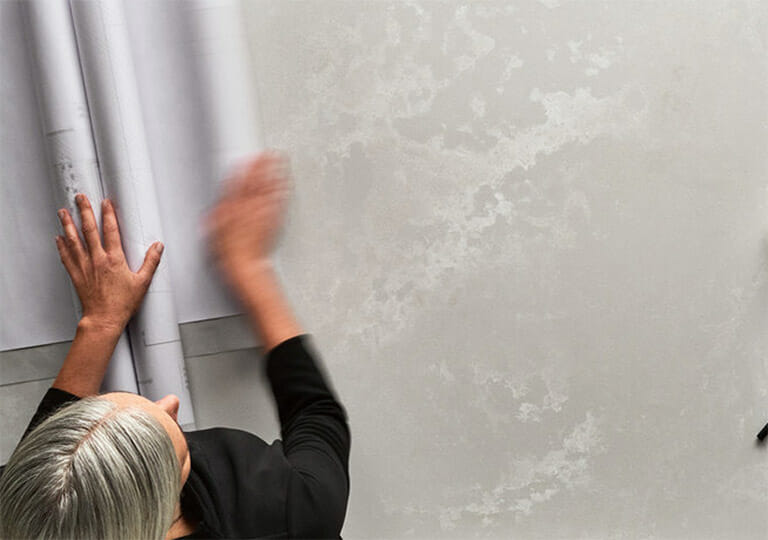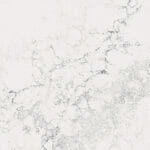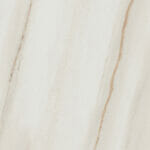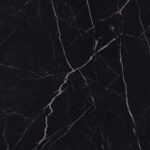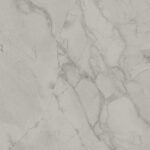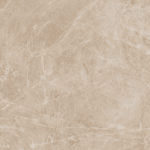Often people confuse quartz and quartzite countertops, thinking they are basically the same thing. In reality, there are a few key differences that make one the clearly superior countertop material.
In this guide, we’ll take a close look at the topic of quartzite vs quartz to reveal the clear winner.
Quartzite vs Quartz: What are Quartzite Countertops?
Quartzite is an abundant metamorphic rock. It occurs naturally when sandstone or chert rich in quartz experiences heat and high pressure. Quartzite is typically made of more than 90% quartzite; some can get as high as 99%.
Quartzite has a glassy appearance and resembles marble in some cases. This generally desirable appearance has made quartzite one of the most popular countertop materials.
How are Quartzite Countertops Made?
Quartzite countertops are produced after slabs of the natural stone are mined and precisely cut to ensure aesthetic appeal.
But most quartzite is too porous to use as a countertop material in its raw form; without sealant, it would soak up liquids with ease. As such, the countertops are typically coated in polyurethanes, wax, or acrylic. This process is essential for the practicality of quartzite countertops in the kitchen but it also presents some challenges for the owner, which we’ll explore shortly.
What are Quartz Countertops?
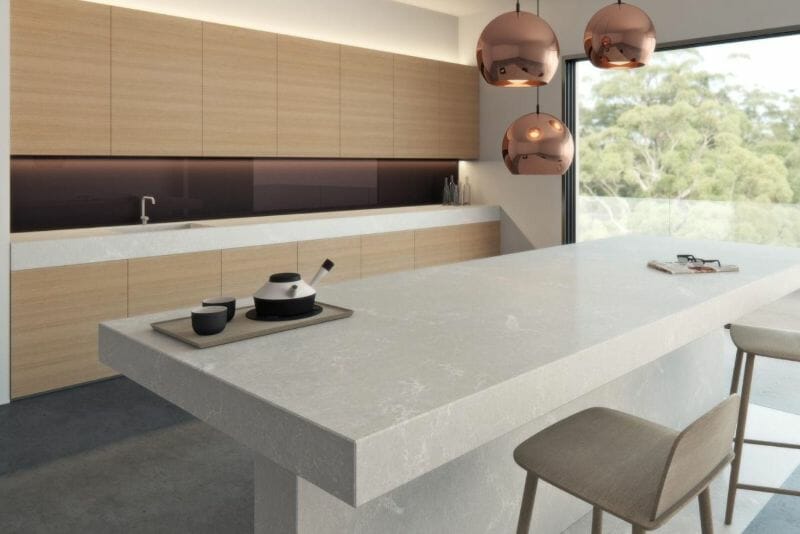
Quartz countertops are more versatile and durable than quartzite.
While quartzite countertops are produced using natural stone, quartz countertops are made using engineered stone. This engineered stone is comprised of about 90% loose quartz. The rest is resins and pigments.
Up until recently, it was hard for engineered stone to match the natural beauty of quartzite. With significant advancements in countertop stone manufacturing, however, quartz now offers beauty that outshines natural stone. It can even be made to resemble materials such as granite and marble.
How are Quartz Countertops Made?
The answer to the question, “how are quartz countertops made?” depends largely on the manufacturer. Their engineered nature provides a lot of flexibility in terms of process – and quality.
Caesarstone’s quartz for kitchen counters, recognized as the best on the market, are made by combining up to 93% heavily inspected quartz minerals with pigments and polymer resins. This mixture is poured into a mold, pressed, cured, heated for 45 minutes, gauged, and then polished.
Each slab is individually inspected for quality before being cleared.
This state-of-the-art process for manufacturing quartz countertops results in a material that is more durable and arguably more beautiful than quartzite or a cheap quartz countertop.
Let’s dive deeper into the comparisons.
Quartz vs. Quartzite Countertops in the Kitchen
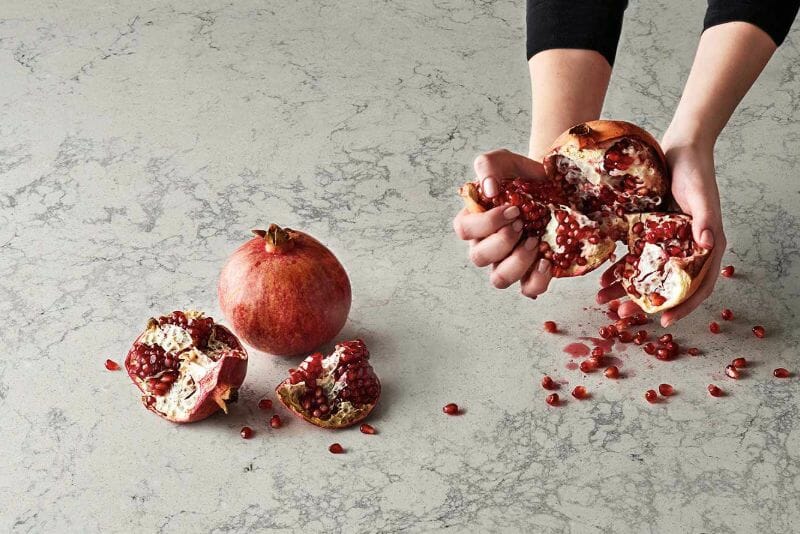
With quartz, you can expect a much more worry-free experience.
The ideal countertop material enhances your experience in the kitchen. Quartz countertop benefits allow it to achieve this, whereas quartzite countertops have properties that make them less capable.
How to Clean Quartzite Countertops vs. Quartz
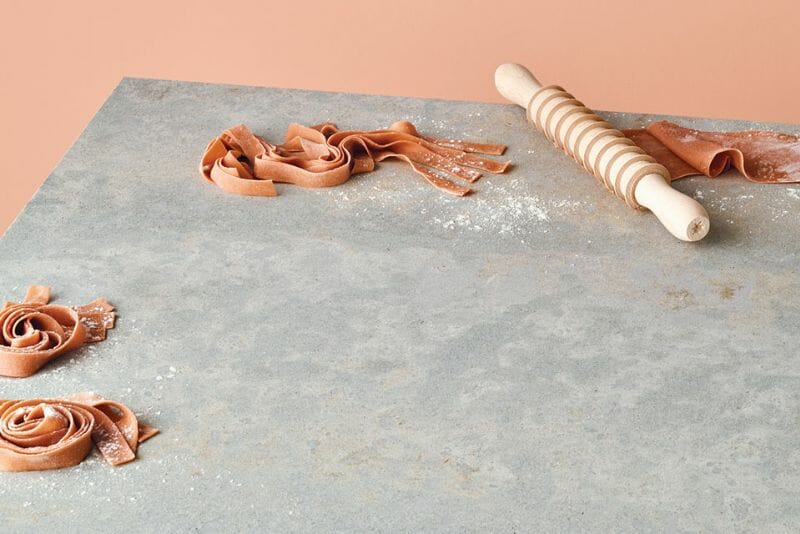
On the topic of quartzite vs quartz, cleaning considerations for each are substantially different.
The sealant on most quartzite countertops wears down and must be replaced 1-2 times a year. We’ll explore that in greater detail shortly but the important thing to know about this in regards to cleaning is that you must clean spills on quartzite very quickly.
Many people who don’t know how to clean quartzite countertops fail to realize that the sealant does not need to be completely worn away for spills to stain the porous natural stone. Even sealant that has simply worn thin will not resist liquids like wine or tomato sauce if you leave spills uncleaned for too long.
To avoid this, engage in good quartzite countertops cleaning practices; wipe spills immediately with a damp rag. For day-to-day cleaning, add mild soap to the water before soaking the rag in it.
The main advantage of quartz countertops is that they are significantly more resilient.
Quartz is nonporous and won’t soak up liquids. Quartz countertops still can stain, though, so it’s good practice to clean up spills as quickly as possible. One just doesn’t need to panic about spills like they would with quartzite.
With both countertop materials, avoid abrasive cleaners.
Quartzite Countertops Price vs. Quartz
Quartzite countertops’ price is similar to that of quartz. The cost of quartzite and quartz ranges from $60 per square foot up to $100 and beyond. That’s just the material cost, however; a look at installation costs reveals a larger gap between quartzite and quartz.
Because quartzite is natural stone, more complex countertop installations (like waterfall countertops) require custom cutting, which drastically increases costs.
Quartz can be molded to suit virtually any application or design imaginable, reducing costs significantly. This makes it a much more effective material for keeping up with countertop trends.
Quartzite Countertops vs. Granite Cost
It’s worth comparing quartzite to one of the other popular countertop types to get an accurate idea of cost. While granite is waning in popularity, it’s a good candidate for comparison.
Quartzite tends to be more expensive than it, with granite starting at roughly $50 per square foot.
You get what you pay for, though; while quartzite and quartz both cost more, granite is the softest of the three. It’s also quite porous and requires even more sealing than quartzite.
Quartzite Countertops Care vs. Quartz
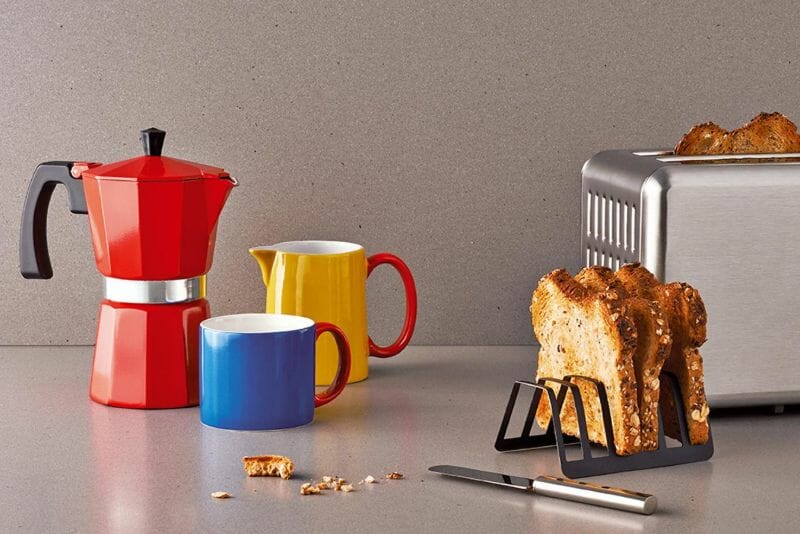
On the topic of quartzite vs quartz, the latter reveals itself as the more life-proof material.
As mentioned earlier, quartzite countertops generally require resealing 1-2 times per year. This is a crucial part of quartzite countertops care; neglect will result in a damaged and stained countertop. Quartz countertops, on the other hand, do not require sealing.
While quartzite is harder than quartz (and therefore slightly more scratch-resistant), it will crack with greater ease. This can turn into a massive expense.
Both materials will withstand heat beyond what you’d be likely to subject them to.
To put it simply, quartz countertop care is a significantly easier affair. Caesarstone surfaces require less maintenance than quartzite.
Quartzite Countertops Colors vs. Quartz
Because of the materials in them, quartz countertops colors occupy a virtually infinite range. They can even take on the appearance of natural stone like marble or granite.
Quartzite countertops, on the other hand, are made using primarily natural materials. As such, quartzite countertops colors are more limited. You’re stuck with hues ranging from white to gray with the purest quartzite; any other color like orange quartzite results from the presence of other minerals or substances.
Quartzite vs Quartz: Why Quartz is King
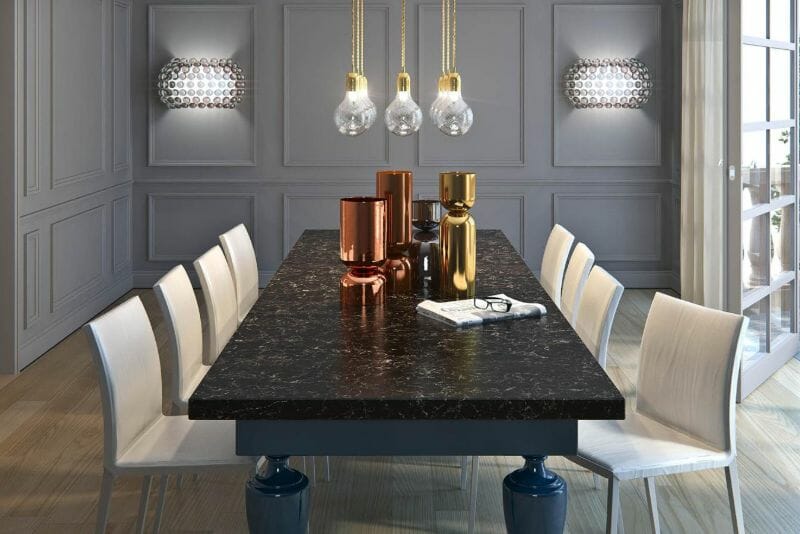
By now, you should have a good understanding of why a comparison of quartz and quartzite results in a clear win for the former.
Let’s do a quick recap.
The quartz countertop manufacturing process allows for greater customization. This means a greater array of options in terms of appearance. With quartzite, you don’t have many options beyond the stone’s natural appearance.
Beyond appearance, ease of maintenance is another area in which quartz shines. You don’t need to worry about maintaining a proper seal on quartz, whereas quartzite requires resealing 1-2 times a year. Even with a proper seal, quartzite countertops cleaning is crucial; spills will leak through otherwise. Quartz is much more resilient in this regard.
Further, quartz offers greater resistance to cracking. Its technically softer nature shouldn’t be a concern as long as you use a cutting board.
All of these factors combine to make quartz countertops a far better investment than quartzite. You’ll not only enjoy your kitchen more with quartz – you’ll be able to use the surface as a selling point later on, too.
Caesarstone Quartz: The Best Countertops On The Market
As great as quartz countertops are, they’re not all created equal. Cheaper variants use low-quality mixes with only 70% loose quartz. The quartz they do use tends to be of vastly lower quality as well, as does the manufacturing equipment.
Caesarstone holds its quartz countertops to the highest possible standard. You won’t find spots or smudges, shade differences, holes, or any other inconsistencies in a Caesarstone surface.
Beyond quality, Caesarstone is also constantly pushing the envelope in terms of design. You’ll find a variety of options that combine classic appeal with modern sensibilities.
Visit the Caesarstone catalog page to start exploring.
Frequently Asked Questions
What is the difference between quartz and quartzite countertops?
Quartzite countertops are produced using natural, porous stone that is cut to exact dimensions. Quartz countertops are engineered stone that is molded into custom shapes. Quality examples contain more than 90% loose quartz, with the remaining 7% being resins and other materials. What this means for you as the buyer is that quartz countertops will offer more resilience to stains, cracks, and chips.
How much do quartzite countertops cost?
Quartzite countertops for the kitchen range from $60 per square foot to $100 and beyond. Years ago, this was a reasonable cost. Today, engineered surfaces like quartz can be had for the same or less cost per square foot while providing even better performance and looks.
How do you remove stains from quartzite countertops?
To remove stains from quartzite countertops, first try wiping the stain down with a mixture of water and mild dish detergent. If that doesn’t work, mix water with a few drops of ammonia and no greater than 12% strength hydrogen peroxide.
For persistent stains, use a poultice, which is a paste that you must generally place on the stained area, cover with plastic, and leave for a day or two.
What is the durability of quartzite vs quartz?
Quartz is a significantly more durable material. Quartzite stains and chips with greater ease. A large part of the issue is the rock’s more porous nature.
